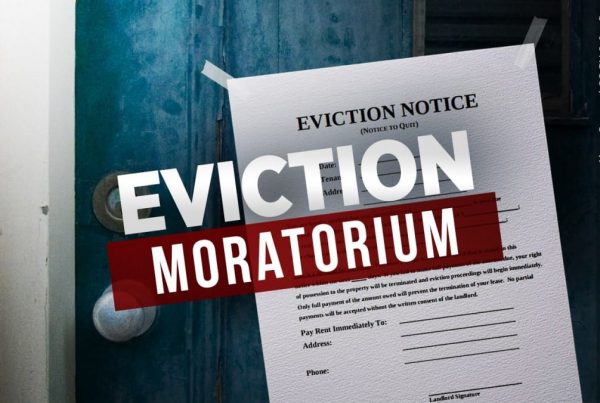Recently the city of Portland passed a new ordinance that requires landlords to pay relocation expenses if they serve their tenant a No-cause notice or they raise the rent more than 10%. There are a number of things wrong with this ordinance, but as of right now landlords have no choice but to follow the ordinance as it is currently written.
Unfortunately for tenants, this ordinance will increase the number of for-cause evictions and will decrease the supply of available rental units. Hopefully our legislature will recognize this and will start to focus on ways to increase the number of available units for tenants. The main cause for the problems the city cited comes from the low vacancy rates. Even if the city simply speeds up the permitting and rezoning process for projects that will add rental units to the market they would make a large positive impact for tenants.
I have included a copy of the City Counsel’s reasoning as well as the exact wording of this ordinance below.
Many rental property owners will be looking to sell their rental properties, or at least hire professional management because of these law changes. If you know of any feel free to give them my contact information as we specialize in management and sales of residential and commercial rental properties.
Copy of city council reasoning and the Ordinance:
* Amend Affordable Housing Preservation and Portland Renter Protections to add relocation
assistance for involuntary displacements of tenants (Ordinance; amend Code Section 30.01.085)
The City of Portland ordains:
Section 1. The Council finds:
1. As noted in the City’s 2016 Report on the State of Housing in Portland (the “Housing
Report”), the average monthly rent in Portland rose 7 percent between 2015 and 2016,
with increases between 12-18 percent in 1, 2, and 3-bedroom units. Studio apartments
experienced a comparatively smaller increase of 3 percent.
2. This is now the fourth consecutive year that Portland has seen an annual rent increase in
excess of 5 percent, with the average rent increasing nearly 30 percent since 2012.
3. Significant increases in rents raise serious concerns over potential involuntary economic
displacement. East Portland neighborhoods saw some of the city’s largest rent increases.
4. Large rent increases in neighborhoods in Southwest and North Portland in both 2015 and
2016 also raise concerns over potential involuntary economic displacement.
5. Due to the severe shortage of rental housing and shelter space arising from human-made
events and circumstances, the Portland City Council (“Council”) declared a housing
emergency on October 7, 2015 (the “Housing Emergency”). Council extended the
Housing Emergency for one additional year until October 6[[Al], 2017.
6. Also in October 2015, finding that Portland tenants need more advance notice of both no cause
terminations and rental increases, Council approved amendments to City Code Chapter
30.01 .085 (the “Portland Renter Protections”), requiring a 90-day notice before a no-cause
termination of tenancy, and a 90-day notice for a rent increase greater than 5
percent over a 12-month period.
7. At least 45% of the population of Portland are tenants.
8. Over 52% of tenants in Portland are considered “cost-burdened” (paying over 30% of
their gross monthly income on rent).
9. The average Portland tenant is paying between 45% to 49% of their income in rent which
puts them at significant risk of becoming “severely cost-burdened” (paying over 50% of
their gross monthly income on rent).
10. Rent increases of 10% and higher have the effect of constructively evicting tenants
(“Economic Evictions”) resulting in involuntary economic displacement.
11. Involuntary displacement occurs not only as a result of Economic Evictions, but also
when a tenant is forced to leave their home through no fault of their own due to a no-cause
eviction.
12. Involuntary displacements have contributed to a significant increase in homelessness.
Point-in-Time Counts for 2015 indicate a 26.8% increase in newly homeless individuals
including a 48% increase in persons of color and a 24% increase in families with
children.
13. Relocation expenses associated involuntary displacement, such as application fees,
security deposits, double rent, moving supplies, storage, and lost wages present a
significant financial burden to an average Portland tenant.
14. Relocation assistance is essential to allow tenants to manage the unexpected relocation
expenses that result from involuntary displacements.
15. Current law allows for just-cause eviction of tenants who are engaging in unlawful
behavior, or who are otherwise breaking the conditions of their lease agreement.
Remedies for property owners in these circumstances are well established in the court
system and are easy and inexpensive to obtain. Tenants evicted for just-cause reasons
would not qualify for relocation benefits.
16. Accordingly, the Portland Renter Protections set forth in City Code Chapter 30.01.085
are amended to include for the provision of relocation assistance for tenants receiving a
90-day notice for a no-cause termination of tenancy or an Economic Eviction
(“Relocation Assistance”).
1 7. Relocation Assistance amounts were determined by averaging the range of rental rates of
similarly sized units across the city according to the Housing Report. Averaging the
range of rents also creates an equitable flat fee that does not vary based on the current
rent paid, thus giving property owners a fixed amount to plan for.
NOW, THEREFORE, the Council directs:
a. City Code Chapter 30.01 Affordable Housing Preservation is hereby amended to add
Relocation Assistance to the Portland Renter Protections, as provided in Exhibit A,
attached hereto.
b. If any portion of this Ordinance or the Relocation Assistance is ruled invalid, void or illegal
by an order of the court, the remainder of this Ordinance and the Relocation Assistance
shall remain in full force and effect.
Section 2. The Council declares that an emergency exists to prevent delays in implementing the
Relocation Assistance therefore, this ordinance shall be in full force and effect on and after its
date of passage.
Passed by the Council:
Comm Eudaly and Mayor Wheeler
Prepared by: Jamey Duhamel
Date Prepared: 01/24/2017
Mary Hull Caballero
Auditor of the City of Portland
In addition to the protections set forth in the Residential Landlord and Tenant Act,
the following additional protections apply to Tenants that have a Rental Agreement
for a dwelling unit Premises covered by the Act. For purposes of this chapter,
capitalized terms have the meaning set forth in the Residential Landlord and Tenant
Act.
A Landlord may terminate a Rental Agreement without a cause specified in the Act
only by delivering a written notice of termination (the “Termination Notice”) to the
Tenant of (a) not less than 90 days before the termination date designated in that
notice as calculated under the Act; or (b) the time period designated in the Rental
Agreement, whichever is longer. Within 14 days after a Tenant receives the
Termination Notice, a Landlord shall pay to the Tenant as relocation assistance, a
payment (“Relocation Assistance”) in the amount that follows: $2,900 for a studio
or single room occupancy (“SRO”) dwelling unit, $3,300 for a one-bedroom
dwelling unit, $4,200 for a two-bedroom dwelling unit and $4,500 for a three bedroom
or larger dwelling unit. This requirement does not apply to Rental
Agreements for week-to-week tenancies or to Tenants that occupy the same
Dwelling Unit as the Landlord.
A Landlord may not increase a Tenant’s Rent or Associated Housing Costs by 5
percent or more over a 12 month period unless the Landlord gives notice in writing
(the “Increase Notice”) to each affected Tenant: (a) at least 90 days prior to the
effective date of the rent increase; or (b) the time period designated in the Rental
Agreement, whichever is longer. Such notice must specify the amount of the
increase, the amount of the new Rent or Associated Housing Costs and the date, as
calculated under the Act, when the increase becomes effective. If, within 14 days
after a Tenant receives an Increase Notice indicating a Rent increase of 10 percent
or more within a 12 month period and a Tenant provides written notice to the
Landlord of the Tenant’s intent to terminate the Rental Agreement ( the “Tenant’s
Notice”), then, within 14 days of receiving the Tenant’s Notice, the Landlord shall
pay to the Tenant Relocation Assistance in the amount that follows: $2,900 for a
studio or SRO dwelling unit, $3,300 for a one-bedroom dwelling unit, $4,200 for a
two-bedroom dwelling unit and $4,500 for a three-bedroom or larger dwelling unit.
A Landlord that fails to comply with any of the requirements set forth in this Section
30.01.085 shall be liable to the Tenant for an amount up to three months Rent as
well as actual damages, Relocation Assistance, reasonable attorney fees and costs
(collectively, “Damages”). Any Tenant claiming to be aggrieved by a Landlord’s
noncompliance with the foregoing has a cause of action in any court of competent
jurisdiction for Damages and such other remedies as may be appropriate.
The provisions of this Section 30.01.085 concerning Relocation Assistance shall be
in effect for the duration of the Housing Emergency declared by Council on October
7, 2015 by Ordinance 1873 71 and extended for a period of 1 year to October 6,
2017 by Ordinance 187973.
IMPACT STATEMENT
Legislation title: * Amend Affordable Housing Preservation and Portland Renter Protections to add
relocation assistance for involuntary displacements of tenants (Ordinance; Amend Code Chapter 30.01)
Contact name: Jamey Duhamel
Contact phone: 503-823-3061
Presenter name: Jamey Duhamel
Purpose of proposed legislation and background information:
The city declared a Housing State of Emergency in October of 2015 and amended code to
increase notice periods for no-cause evictions and rent increases beyond 5% annually to 90
days in November 2015. Since that time, the housing crisis has continued unabated and has
seen a large number of Portland renters negatively impacted by involuntary displacements.
This proposal would request relocation assistance from landlords in the form of a flat-rate
based on unit size to any tenant who receives a no-cause eviction, and for any tenant forced
to move due to a rent increase of 10% or more in a 12-month period.
The purpose of this proposal is to mitigate the damages of involuntary displacement on
families, particularly children, as well as the external costs born by the city and community
when families need additional assistance and resources to access new housing.
This proposal is added to the current ordinance language regarding 90 day notices for no-cause
evictions and rent increases and does not change the nature of that code in any way.
Community impacts and community involvement:
This proposal will have significant impact on renters in Portland by giving them additional
resources to find replacement housing when their current living situation is taken through
no fault of their own. Mitigating involuntary displacements allows communities to remain
relatively stable, and creates a more equitable cost burden to low income families. Children
are more likely to remain in their schools of choice, and adults are better able to maintain
their jobs, their health providers, and their cultural connections.
We have reached out to tenant advocates, housing advocates, homeless advocates, lawyers,
PSU professors, landlords, state elected officials, Portland Housing Bureau, labor unions,
and organizations representing communities of color to get input and feedback on this
proposal. The support is universal as the proposal is recognized as a significant benefit to
cost burdened renters and folks from disadvantaged communities.
We anticipate opposition from organizations that represent landlords.
We will be inviting various groups and individuals to speak on a panel before public
testimony.




